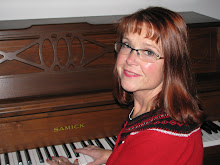
Social Skills are Not Natural Skills; They are Learned:
By watching others, testing, and interacting with others, children learn what behaviours get which results; how to manipulate their world; what roles are and how they adapt; what the limits are etc. They are learning about dealing with frustration, patience, delayed gratification, self-esteem, confidence, and the ability to take risks.
What they are learning now is the basis of how they will interact with others when they are at age16--they are learning about becoming self-disciplined. Providing opportunities that are challenging and stimulating but not beyond their ability helps them to build self-esteem. How situations are handled can build empathy for others. They need freedom of choice matched with dependable boundaries. Finally, a loving environment increases thier ability to learn!
- Talk to toddlers about everything you are doing and thinking (helps them with problem solving skills as well as social skills and self-praise)
- Role-model the skills you want them to copy
- When appropriate, don't solve issues for them--help them find solutions to try
- Don't judge, demoralize, punish---when they act inappropriately it is because they haven't learned the appropriate way yet
- Acknowledge interactions with others, attempts at tasks, accomplishments, risk-taking
- Create story books together (they can draw the pictures), discussing an issue they are having (ex. separation anxiety during child care: include pictures of parents at car and at their work; start the sentences with "I like it when.." and "It makes me sad because..." and end off the story with the information about when the parents will return: time, during what activity etc)
- Give lots of hugs, snuggles, smiles, reassurance, love!

- Sing, dance and play music related to children’s cultures.
- Have food tasting or prepare a treat related to children’s cultures.
- Invite family members to share family traditions.
- Invite children to bring in photos or keepsakes of familytraditions.
- Visit a museum or library and borrow artifacts, books, music and art related to a variety of ethnicities.
- Make an effort to expose children to cultures other than their own.
- Play games related to multicultural traditions.
- Always provide pictures, puzzles and books which include children and adults of various ethnic backgrounds.
- Provide dolls of various races and clothing from differentcultures in the dramatic play area.
http://collab4kids.homestead.com/socialbeings.pdf
Prosocial Behavior
(notes from "Kindermusik and Social/Emotional Development" see link below)What is it?
Prosocial behavior goes beyond simply “being social” and instead describes acts that specifically show recognition of and empathy for the feelings of others. It involves ethics, sharing, cooperation, caring gestures,
and compromises for cooperation and group harmony. In studies, prosocial behavior seems linked, not surprisingly, to both listening skills and expression skills, as both are necessary to making connections with others. Children who demonstrate prosocial behaviors are more likely to play well with others, express recognition of the feelings of others, and even engage in conflict-resolution behaviors.
Repeatedly and undeniably, the demonstration of good prosocial behaviors has been statistically associated with teachers’ assessments of children’s school-readiness, with the development of positive friendships and relationships in school, and even with greater literacy skills, as demonstrated in testing.
Children who can communicate their needs, recognize emotions, and produce appropriate solutions to interpersonal conflicts have an easier time forming positive relationships and benefit more from the learning environment of school. Social development and academic development are inextricably connected.
How it works in a Kindermusik class
Simple observation makes it clear that music activities like those in Kindermusik provide a wonderful opportunity for social interaction and positive connections. Group activities foster opportunities for cooperation, conversation, coordinated movement, hand-holding, and the abandonment of inhibitions. As a whole, groups who have engaged in musical activities are more confident and better adjusted than groups who engage only in traditional, non-group, non-musical activities.
In addition, research suggests that music activities enable children to better decode the musical aspects (such as rhythm, stress, and intonation) of speech, and even to better identify emotions and tones in spoken language.
All of these skills—listening, decoding speech, connecting with others, adjusting to a group—are essential to the development of what one study defines as “social competence”, or the capacity for children to engage successfully with other children, to set and meet social goals, to develop friendships, and to gain entry into the peer groups they choose.
“The preschool period is a particularly important time for the development of social skills,” the researchers state. “It is at this time when children begin to expand their social interactions beyond their parents and take on the developmental task of building relationships and acceptance with their peers.”
Excellent article: Kindermusik Music & Social-Emotional Development
Please leave a comment or send me a tweet: @Angelmusik




No comments:
Post a Comment